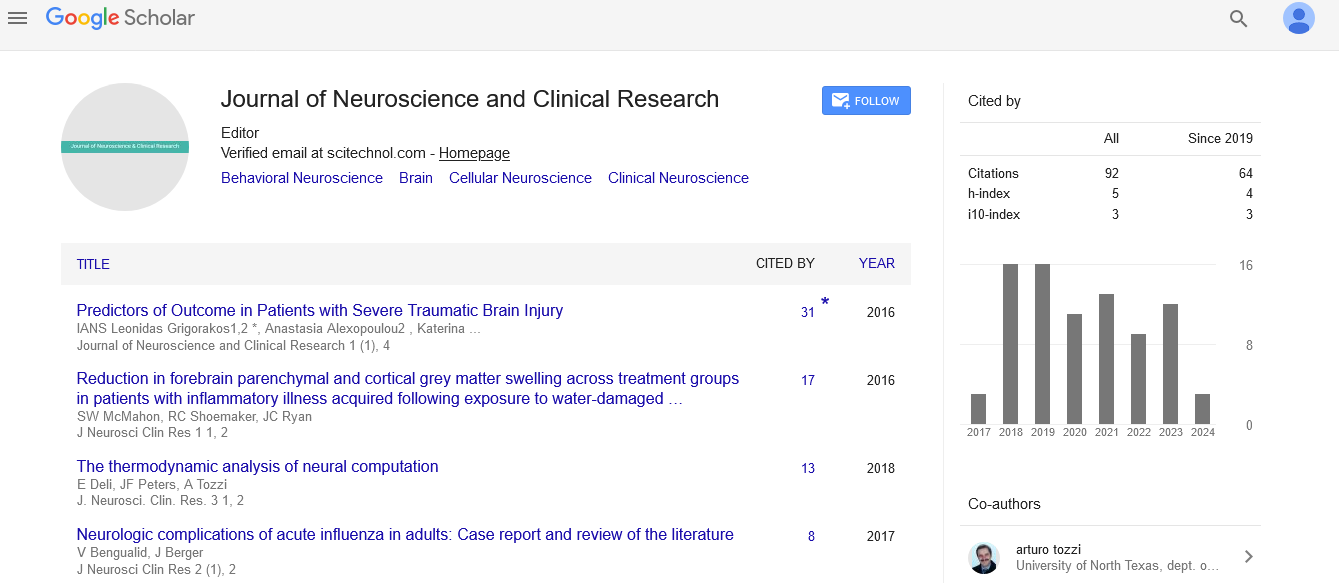Improving the predictive accuracy for pre-eclampsia by combining clinical risk factors with biochemical indicators
Ana Daneva Markova
University Hospital of Gynecology and Obstetrics, Macedonia
: J Neurosci Clin Res
Abstract
Objective: To determine whether previously identified risk factors are associated with the development of the severe form of pre-eclampsia in a heterogeneous cohort of women, and the predictive values of this risk factors when combined with certain biochemical indicators.
Study design: Systematic review of data collected for a doctoral case-control study plus the examination of the indicators of preeclampsia and maternal IL10 levels. This examination was conducted in 100 women with pregnancies complicated by varying degrees of preeclampsia and in 80 normotensive patients, hospitalized at the University Clinic of Gynecology and Obstetrics, Skopje, Republic of Macedonia. Patients with preeclampsia were categorized into moderate (m PE) and severe (s PE) preeclampsia group according to the degree of preeclampsia. The severity of preeclampsia was determined according to the definition of the World Health Organization, Handbook for guideline development from 2010.
Results: The regression analysis applied in this study showed that elevated systolic blood pressure of 160 mmHg or higher, diastolic blood pressure of 100 mmHg or higher, pregnancy at older age, nulliparity, persistent proteinuria in pregnancy, the serum LDH concentration of 450 U/L or higher and reduced serum concentrations of IL10 as significant predictors of severe preeclampsia in pregnant women. While other variables predicted a higher likelihood for the development of severe preeclampsia, IL10 decreased such likelihood. IL10 was also found to be negatively correlated with proteinuria, and positively correlated with blood platelets. Significantly higher concentration of IL10 was confirmed in patients with a higher number of platelets in the blood, and vice versa. On the other hand, the serum concentration of IL10 was significantly lower in patients with a higher amount of proteins in the urine, and vice versa.
Conclusions: Examination of clinical risk factor combined with biochemical markers can improve the predictive success of pre-eclampsia and has important clinical values in improving the prognosis of pregnant women and foetuses.
Biography
Ana Daneva Markova is a specialist with a demonstrated history of working in the medical practice industry. She is skilled in Clinical Research, Medical Education, OB/GYN, Gynecolog. She is a strong professional with a Phd MD of medical science focused in Perinatology from Medical School
E-mail: anadaneva@yahoo.com
 Spanish
Spanish  Chinese
Chinese  Russian
Russian  German
German  French
French  Japanese
Japanese  Portuguese
Portuguese  Hindi
Hindi 